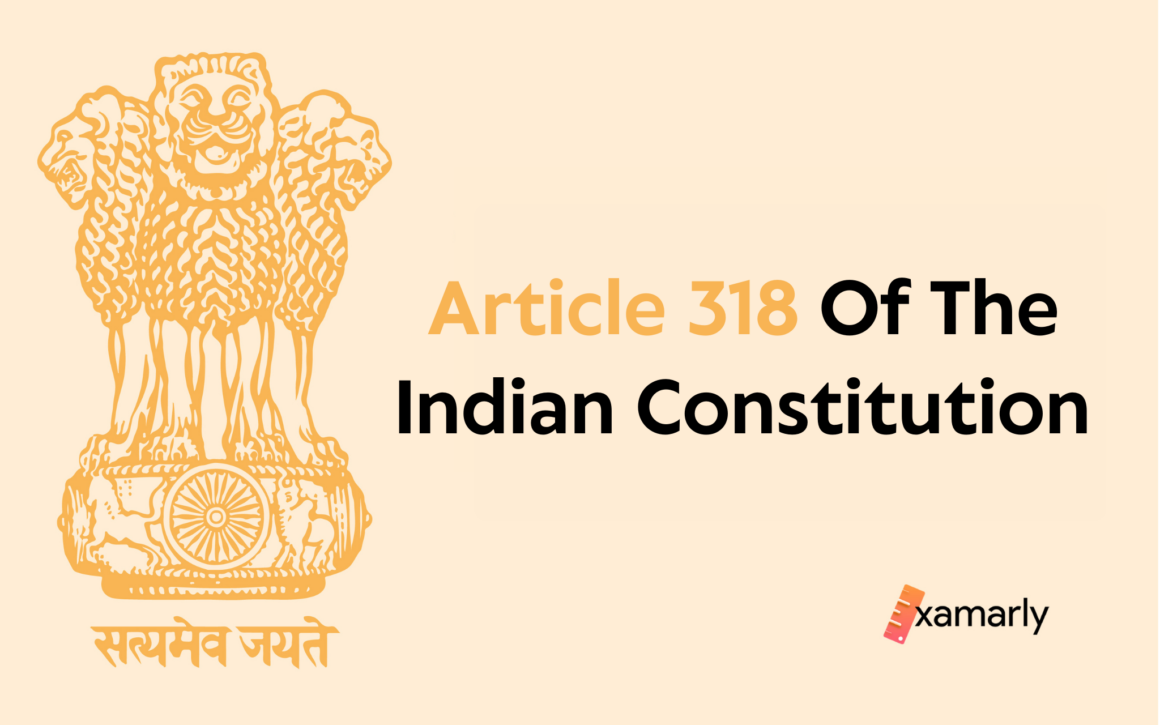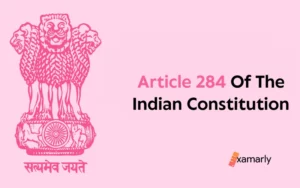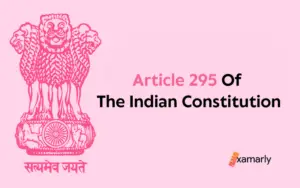Article 318 of the Indian Constitution grants the power to make regulations as to the conditions of service of members and staff of the Union and Joint Service Commission as well as the State Public Service Commission.
This article, along with other related provisions in the Constitution, lays out the framework for the establishment and operation of these commissions, which are responsible for recruiting candidates to civil services and posts and making recommendations for appointments and promotions to these positions.
The power to make regulations with regard to the conditions of service of members and staff of the commission is an important aspect of ensuring the independence and effectiveness of the commission in carrying out its functions. In this context, the regulations may cover issues such as terms of appointment, salaries, benefits, and other conditions of service for members and staff of the commission.
- Background Of Article 318 Of The Indian Constitution
- Article 318 Of The Indian Constitution
- What are Union Public Service Commissions and State Public Service Commissions?
- Conclusion
- FAQs Related To Article 318 Of The Indian Constitution
- Which part of the Indian Constitution does Article 318 belong to?
- Which Articles of the Indian Constitution are included in Part XIV called "Services Under The Union And The States"?
- When was Article 318 of the Indian Constitution adopted?
- How many Parts and Schedules is the Constitution of India divided into?
- What is Joint Commission?
- How did the Seventh Amendment Act, of 1956 modify Article 318 of the Indian Constitution?
Background Of Article 318 Of The Indian Constitution
- Draft Article 285B, which later became Article 318 of the Constitution of India 1950, was not present in the initial draft of the Constitution in 1948.
- The Drafting Committee Chairman introduced this article on August 22, 1949.
- The article gave the President power to regulate the number of members of Union and Joint Service Commissions and determine their conditions of service.
- The Governor would have similar power over State Commission members.
- Some members proposed that the President or Governor consult the Service Commission Chairman before making provisions, while others proposed that the Chairman of the Service Commission should appoint the members and have the power to determine their conditions of service.
- Another member moved multiple amendments, one of which was to replace the President and Governor with Parliament or State Legislatures.
- All amendments were either withdrawn or rejected and the draft article was adopted without any changes on the same day.
Article 318 Of The Indian Constitution
For an in-depth understanding of Article 318 of the Indian Constitution, let’s take a closer look at what its clause states.
The Clause – As it is & Explained
In the case of the Union Commission or a Joint Commission, the President and, in the case of a State Commission, the Governor of the State may by regulations—
(a) determine the number of members of the Commission and their conditions of service; and
(b) make provision with respect to the number of members of the staff of the Commission and their conditions of service: Provided that the conditions of service of a member of a Public Service Commission shall not be varied to his disadvantage after his appointment.
Article 318 of the Indian Constitution clearly explains the provisions and procedure for the establishment and operation of the Union and Joint Commissions, as well as State Public Service Commissions. One of the key powers granted by this article is the ability of the President and Governor, respectively, to regulate the number of members and staff of these commissions, as well as the conditions of their service.
The article empowers the President to regulate the number of members of the Union and Joint Service Commissions and to determine their conditions of service. Similarly, the Governor is given the power to regulate the number of members of the State Commission and determine their conditions of service. This includes the power to make provisions with respect to the number of members of the staff of the Commission as well as other aspects that are related to their service.
This provision grants the President and Governor broad discretion to shape the composition and structure of the Public Service Commissions and to set the terms and conditions under which members and staff serve.
It is worth noting that the conditions of service for a member of a Public Service Commission shall not be varied to his disadvantage after his appointment. For example, a member’s salary decided during the time of appointment cannot be reduced later.
This provision is an important safeguard to protect the independence and integrity of the Public Service Commission. The members of the Public Service Commission are appointed by the President or Governor as the case may be and in the interest of fair and impartial recruitment of civil servants. And it is very important that the service conditions of members shouldn’t be changed to their disadvantage once they are appointed.
What are Union Public Service Commissions and State Public Service Commissions?
The Union and State Public Service Commission are autonomous bodies established under the Constitution with the mandate of recruitment to Civil Services and Posts. Both Union Public Service Commission (UPSC) and State Public Service Commission (SPSC) are responsible for conducting the Civil Services Examination, recruitment to Group A and Group B services and posts, besides other duties assigned to them by the President or the Governor under the provision of the Constitution of India.
The regulations defined under the provisions of Article 318 of the Indian Constitution provide a structure for the functioning of the Public Service Commission, both Union and State Public Service Commission, which play an essential part in the functioning of a country as they are responsible for recruiting candidates to civil services and posts, and making recommendations for appointments and promotions to these positions.
Conclusion
In short, Article 318 of the Indian Constitution grants the President and the Governor, the power to make regulations as to the conditions of service of members and staff of the Public Service Commission.
This provision helps in laying the foundation of the establishment and operation of the Union and State Public Service Commission, and empowers the President and Governor to shape the composition and structure of the commission, and to set the terms and conditions under which members and staff service, and also provides the safeguard that the conditions of service of a member of the Public Service Commission shall not be varied to his disadvantage after his appointment.
You Might Also Like To Read –
- Article 315 Of The Indian Constitution
- Article 316 Of The Indian Constitution
- Article 317 Of The Indian Constitution
FAQs Related To Article 318 Of The Indian Constitution
Which part of the Indian Constitution does Article 318 belong to?
Article 318 of the Indian Constitution belongs to Chapter II (Public Service Commissions) of Part XIV which is called Services Under The Union And The States.
Which Articles of the Indian Constitution are included in Part XIV called “Services Under The Union And The States”?
Part XIV of the Indian Constitution deals with the Services and various aspects of the Public Service Commissions of the States and the Union and includes Articles 308 to 323.
When was Article 318 of the Indian Constitution adopted?
Draft Article 285B (Article 318 of the Constitution of India 1950) was adopted on 22nd August 1949.
How many Parts and Schedules is the Constitution of India divided into?
The Constitution of India is divided into 25 Parts and 12 Schedules. However, at the time of its commencement, it had 22 Parts and 8 Schedules.
What is Joint Commission?
The Public Service Commission of two or more States is called Joint Commission.
How did the Seventh Amendment Act, of 1956 modify Article 318 of the Indian Constitution?
The words “or Rajpramukh” were omitted by the Constitution (Seventh Amendment) Act in1956






